International Competition Jury (Jury for Public Presentation)
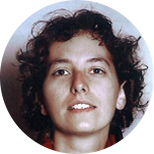
Hélène Coppel
Born in 1975. After political studies and ‘Cultural project and social environnement’ speciality, H?l?ne Coppel has started her career as a programing assistant on the 2000 edition of Cineama du Reel Film Festival in Paris, before being in charge of the resource library at Altermedia in Saint-Denis. In 2001, she joined Documentaire sur Grand ?cran’s team, a nonprofit promoting documentary cinema in France and French-speaking countries, as a communication officer. Since 2005, she has been the programing officer and director.
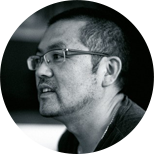
O Muel
Born in 1971, O has directed two short films and several feature films; Nostalgia, Ppong ddol, Wind of Island. Jiseul, Golden chariot in the sky, Eyelids is his forth feature film. After organizing the various plays and performances such as, ‘Terror J’, and the street art festival called ‘Flower for a Head’, his interest of the independent culture project turned into films. He is a co-director at the Jeju Independent Film Society, and serves as an artistic director of the Japari Research Center.
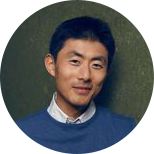
Zhao Qi
Zhao Qi is an awards winning documentary filmmaker in Beijing, China, including his latest feature, The Chinese Mayor awarded Sundance Special Jury Prize, 2015. He also worked as an executive director and commissioning editor in China Central Television for 19 years. He produced over 800 documentaries covering culture, history, politics and environment. He served as Chairman of ABU (Asian Pacific Broadcasters Union) Prize in 2010, and was nominated executive producer to supervise the CARE project, an international co-production among over 15 Asian countries from 2012 to 2013.
International Competition Jury (Pre-selection Committee)
Lee Seung-min
Lee Seung-min studied film in Cananda and did her doctorate work at Chung-ang University Graduate school of Advanced Imaging Science, Multimedia and Film (GSAIM). She served as a program team leader at Busan International Film Festival and published many papers and books on documentary films. She is currently lecturing at universities.
Sea Lim
Sea Lim studied at Dongguk University and Universit? Paris I. She worked in Film magazine ‘Film2.0’ and co-wrote the books of Eric Rohmer, The Discreet Charm of Luis Bu?uel. She worked as Programmer in Seoul International Agape Film Festival. She is currently writing about the movies and teaching film theory at Hannam University etc.
Wook Steven Heo
Wook Steven Heo received MFA degree in Film at Syracuse University. His unique shorts and documentaries dealing with the theme of cross-cultural identity have been exhibited internationally. He is currently teaching at Yong-in University and also organizing several film festivals to promote independent & experimental films.
Asian Competition Jury (Jury for Public Presentation)
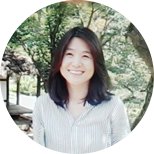
Oh Young-sook
Oh Young-sook is a HK research professor of the Institute for East Asian studies, at SungKongHoe University. She is highly interested in Korean cinema and phenomenon of the trans-boundaries of media. She published several books on Korean Cinema such as Korean Cinema and the Cultural Discourse in the 1950s, and translated The Fright of Real Tears of Slavoj ?i?ek and Narration in the Fiction Film of David Bordwell into Korean.
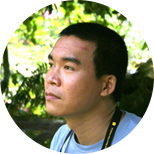
Uruphong Raksasad
Born in rural of Chiang Rai, the northern part of Thailand in 1977, Uruphong Raksasad study at Thammasat’s Faculty of Journalism and Mass Communication where he majored in film and photography. After graduation in 2000, he worked as a film editor and postproduction supervisor for several Thai feature films such as 102 Bangkok Robbery, Sema, and The Warrior of Ayodhaya. Since 2004, he tried to achieve his grassroots filmmaking through the story from his home village.
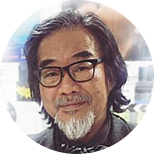
Yasuoka Takaharu
Yasuoka Takaharu is a documentary producer and an editor. In 80’s he has worked for Hara kazuo’s Emperor’s naked army marches on (1987) as an assistant director and started to produce many documentaries with independent directors such as Mori Tatsuya, Hirano Katsuyuki, Watai Takeharu. After the earthquake disaster in 2011 on the eastern part of Japan, he has produced and edited 4 documentaries including Will (2014). He has also worked as a lecturer of documentary film making for over 30 years and is a professor of documentary film at the Japan Institute of the Moving Image.
Asian Competition Jury (Pre-selection Committee)
Hwang Miyojo
She studied Film Theory, Cultural Research, East Asian Studies, and Comparative Literature at Bangalore CSCS in India and Columbia Graduate School. She participated on the production of the documentary The Road to Bagdad (2003) and New Woman: Her First Song (2004) and has been the programmer for the Seoul International Women’s Film Festival from 2011 to 2014.
Choi Min-a
Choi Min-a had worked in film festivals and in the fields of independent film, starting from a staff of the program team in the Seoul Independent Film Festival. She is in charge of planning and management of the Seoul Independent Documentary Festival since 2010.
Korean Competition Jury (Jury for Public Presentation)
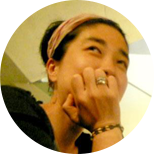
Lee Hyun-jung
Born in Seoul, South Korea Directing 192-399: a story about The House Living Together on 2006 Directing the Letter on 2014 Winning the best Korean documentary at 2015 DMZ international documentary film festival
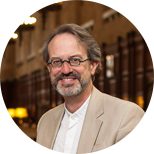
Markus Nornes
Markus Nornes is Professor of Asian cinema at the University of Michigan, and specializes in Japanese film, documentary and translation theory. He has done extensive programming on the international film festival circuit, especially at the Yamagata International Documentary Film Festival. Nornes’ research centers on the cinemas of Asia, particularly the political and ethical complexities of the non-fiction form. He has written books on prewar Japanese documentary, Hou Hsiao-hsien’s City of Sadness, film translation, and a critical biography of director Ogawa Shinsuke.

Roland L?bner
During his studies in film history, media and cultural studies in Weimar, Lyon, Rome and Leipzig he developed a strong passion for contemporary cinema and in particular for documentary film. Since 2008 he is working for DOK Leipzig in various positions. He now primarily coordinates and selects film works for the DOK Film Market. Alongside he gained experience in sales and is a sales and acquisitions executive at Taskovski Films, one of the most notorious distribution and sales companies focussing on creative documentaries.
Korean Competition Jury (Pre-selection Committee)
Lee Hyeon-hui
She was a programmer at Independent Film House-Indie Space and has been taking in Documentary Subcommittee of The Association of Korean Independent Film & Video.
Youth Competition Jury (Jury for Public Presentation)

Gu Min-jeong
I love the cinema because I could travel around the world for free with the films. I went to Paraguay through Landfill Harmonic lately. And last time I went to Saudi Arabia, through Wadjda, that I could never visit in my life time. I think I know how to enjoy films, and I am already a cinephile, aren’t I?

Pong Su-a
It sometimes happens that I meet people who always think negatively. I feel like altering for the better their personality somewhat in the dark, when I talk with them. I am a positive person and I want to be the person who could have a favorable influence on others with my positive and optimistic character.
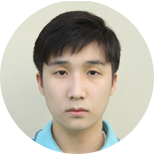
Lee Min-gyu
Having dreamed to be a filmmaker since my childhood, I was graduated only from elementary school and passed the qualification examinations for middle school graduation and college entrance. I am currently studying filmmaking to make films that could satisfy the audience and myself.

Jung Ye-bin
I study the filmmaking at Kaywon high school of Art. I decided to be a filmmaker because I have considered the cinema a thing so strong that could change the world. I hope to offer an opportunity for other people to learn about what they have not known, with the films that I will make, as the films have taught me a lot of things.

Jeong Ha-rim
She is in the third grade of the Korea Animation High school. Third grade???.
Youth Competition Jury (Pre-selection Committee)
Lee Hye-rin
Lee Hye-rin communicates with educators and teenagers through media education, and participates in the community of practical education ‘Dinosaur’. She believes the power of the process of trying to deal with the personal stories and the social issue, to ask questions with his or her proper language, and to share matters of concern with others. And she is interested in the documentary with such power of the process.
Brave New Docs Award· Beautiful New Docs Jury (Jury for Public Presentation)
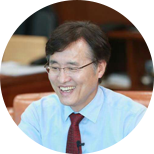
Choi Chang-eui
Choi Chang-eui had been a member of the steering committee and currently served as a commissioner of the DMZ Docs. He had taught students at schools and then had been a member of the Education Committee for twelve years in Gyeonggi Province. He is also the chief of the Happy Future Education Forum and Gyeonggi Educational Network and tries to suggest an alternative for the right policy of education. He wrote seven books such as Happy Creative Education, Happy Writing for elementary students and so on.
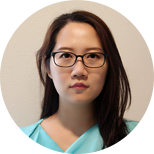
Kim Min-jeong
Kim Min-jeong is a writer and a reporter at a daily newspaper Asia Today and is interested in the documentary as well as in writing scenarios for various kinds of image. She has served as a member of the DMZ Docs Family since the sixth DMZ Docs.
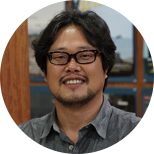
Jin Mo-young
Jin Mo-yeong was born in Haenam, South Jeolla Province in 1970. He studied major in law at a university and had participated in producing news programs and documentary reportage program as a producer and a cameraman in KBS and in the independent broadcasting company since 1997. He had expressed his thoughts as a creator in the boundary between the broadcasting field and the cinema, but he decided to concentrate on the field of the documentary by making his creative works in 2011. He released his feature documentary film My Love, Don’t Cross That River in November 2014, which drew audiences totaling 4.8 million people and set new records in all categories of the Korean independent and art films. And the film was invited to several international festivals and received awards in a variety of categories.